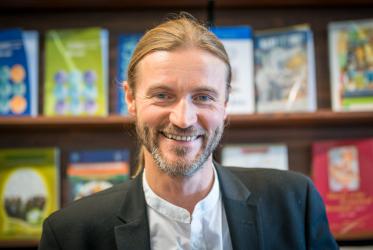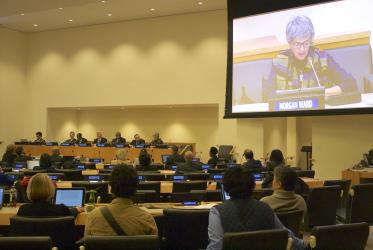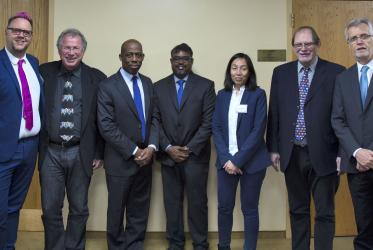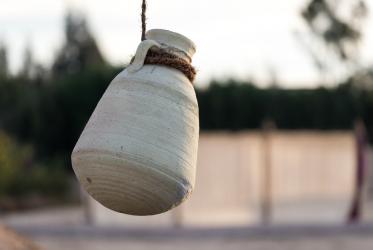Displaying 1 - 20 of 26
26 September 2023
Scottish and UK religious leaders call for urgent climate action
20 September 2021
WCC Eco-School 2021 for Pacific region on Water, Food and Climate Justice
22 - 28 February 2021
“Economy of life” lifted up at special school in Indonesia
22 August 2019
WCC remembers lost colleagues
24 May 2019
WCC mourns lost staff member in Ethiopian Airlines crash
11 March 2019
WCC advocates for economic justice at UN conference
01 June 2018
New economic architecture focus of New York meeting
22 April 2018
At CSW62, “stories are the heartbeat”
21 March 2018
In Zambia, foreign investors complicate “economy of life”
06 September 2017
GEM School: integrating theology and economics
05 September 2017
Grand Imam calls for collaboration against violence and poverty
06 October 2016











